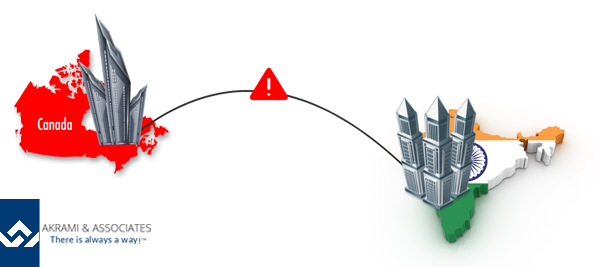Canada Immigration Intra Company Transferees
> Library > Intra Company Transferees
Requirements to Intra Company Transferees To qualify as a NAFTA/CCFTA Intra Company Transferee Visitor the following conditions have to be met by individual and/or business he/she represents: citizenship of the United States, Mexico or Chile; employment in an executive or managerial capacity or one involving "specialized knowledge"; enterprises in the United States, Mexico, Chile and Canada have a parent, branch, subsidiary, or affiliate relationship; continuous employment, in a similar position, for one year in the previous three year period, and compliance with existing immigration requirements for temporary entry. Necessary Documentation proof of American, Mexican or Chilean citizenship; confirmation that the person has been employed continuously by the enterprise for one year within the three year period immediately preceding the date of application; outline of the applicant's current position in an executive, or managerial capacity or one involving specialized knowledge (position, title, place in the organization, job description) in the case of "specialized knowledge", evidence that the person has such knowledge and that the position in Canada requires such knowledge; outline of the position in Canada (position, title, place in the organization, job description); indication of intended duration of stay; and description of the relationship between the enterprise in Canada and the enterprise in the United States, Mexico or Chile. Note: Doing business means regularly, systematically, and continuously providing goods and/or services by parent, branch, subsidiary or affiliate in Canada, United States, Mexico or Chile. What is an affiliate, a branch, an enterprise, a parent and a subsidiary Affiliate: one of two subsidiaries, both of which are owned and controlled by the same parent or individual; one of two legal entitles, owned and controlled by the same group of individuals, each individual owning and controlling approximately the same share or proportion of each company. Branch: is an operating division of office of the same organization housed in a different location. Enterprise: is "any entity constituted or organized under applicable law, whether or not for profit and whether privately or publicly owned including any corporation trust, partnership, sole proprietorship, join venture or other association". Parent: means a firm, corporation, or other legal entity of which has subsidiaries. Subsidiary: refers to a firm, corporation, or other legal entity of which a parent owns: directly or indirectly, half/more than half of the entity and controls the entity; owns, directly or indirectly, 50% of a 50 50 joint venture and has equal control and veto power over the entity; or owns directly or indirectly, less than half of the entity, but in fact controls the entity. Duration An employment authorization issued at the time of the entry can have a maximum of three years. However, individuals admitted to Canada to open an office or to be employed in a new office should be issued an initial authorization to a maximum of one year. Extensions can be granted for duration of up to two years, if the person continues to comply with the requirements for Intra Company Transferees. The category of Intra Company Transferees is the only NAFTA category with a limit of the total duration of employment. The total period of stay for a person employed in an executive or managerial capacity may not exceed seven years. The total period of stay for a person employed in a position requiring specialized knowledge may not exceed five years. Distinction between NAFTA and CCFTA Unlike NAFTA which is a tri partite agreement among Canada, Mexico and the United States, the CCFTA is a bi lateral agreement between Canada and Chile only. Even though much of the CCFTA is modeled after NAFTA, the CCFTA is not binding upon the United States or Mexico. Thus, citizens of Chile should not presume that any of the rights and privileges granted to them under the CCFTA will apply with respect to the United States or Mexico. Similarly, citizens of the United States and Mexico should not presume that any of the rights and privileges granted to them under NAFTA will apply with respect to Chile. | ||||
Executive capacity refers to a position in which the employee primarily:
| ||||
Managerial capacity refers to position in which the employee primarily:
| ||||
"Specialized knowledge" means special knowledge an individual has of a company's product or service and its application in international markets or an advanced level of knowledge or expertise in the organization's processes and procedures.
Special knowledge is unusual and different from that found in a particular industry. The knowledge need not to be proprietary or unique but uncommon. Generally special knowledge may involve a person's familiarity with a product or service which no company makes, or that other companies make, but differently.
Advanced knowledge is complex again, not necessarily unique or known only by a few individuals (proprietary), but advanced.
|
Canada Immigration Law | Who We Are | Services | Immigration | Employment | Retain Us | Archive | Links | Navigation
Business Profile | Professional Credentials | Client References | Contact Information | Index of Topics | Search

